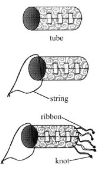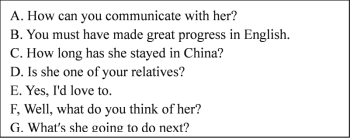-
Historic Canal(运河) Places to Visit
If you want to visit a city with canals, is Venice the only choice you know? Let' s know more about these places.
Amsterdam, Netherlands
Beautiful canals probably aren't the first thing that comes to your mind when you are thinking of Amsterdam, but Amsterdam actually has more canals than Venice. The first canals were built in the Middle Ages and Amsterdam has four main canals now. Today, you can see the classic buildings, along any of the canals, In 2009, UNESCO named Amsterdam's central canal ring a World Heritage Site.
Stockholm, Sweden
Water makes up nearly one-third of Sweden′s capital across 14 islands. Stockholm with a name “Beauty on Water”, is connected by a huge canal network and 57 bridges. In winter, when the canals freeze over, locals and tourists visit there for ice-skating, which gives them the feeling like flying.
Bruges, Belgium
Just a short train ride away from Brussels lies Bruges, an old canal town in Belgium. Although it was built in the 13th century, Bruges appears like something out of a fairy-tale: small, cobblestone(鹅卵石) streets, beautiful bridges and neat houses. Bruges′ canals host a festival every four years, which includes performances by musicians and actors, and lights shining throughout the canals.
1. has even more canals than Venice.
A. Amsterdam B. Bruges C. Stockholm D. Bangkok
2.If you are a girl who loves fairy stories very much, which town probably is your favorite?
A. Bangkok. B. Stockholm. C. Bruges. D. Amsterdam.
3.In _________, Stockholm is more attractive.
A. spring B. summer C. autumn D. winter
难度: 简单查看答案及解析
-
There was a time when hot summer days brought children outdoors to local rivers to catch minnows (米诺鱼). Walking in cool rushing water to catch the small, silver fish was a fun chance on a hot summer's day. Before setting out for the river in their neighborhood, however, children first had to look for a bag. Both boys and girls loved this outdoor activity a lot.
While reaching the side of the river, the children pulled off their shoes and socks and put their feet first into the cold water. Walking carefully in the water, they looked for the right place where the minnows flashed (闪光). Catching minnows was very easy if two children worked together. Taking two corners of the bag, each child stood in the water and slowly lowered the bag until it was at the bottom of the river. Then, standing very still (静止的), the children waited for the fish in the river to do normal activity. The children would again get a corner of the bag in each hand and raise the bag straight up quickly, keeping it as level as possible. Lots of tiny silver fish would cover the bag.
The joy of catching minnows is that, once caught, the fish are thrown back into the water to continue their natural lives. Perhaps they will be taken up by other children and then return to their watery home again. So the bag is lowered back into the river, and the small fish swim off. Then the whole process is repeated once more as more minnows are caught and then released (释放).
1.Why did children first have to look for a bag?
A. They looked for something to protect themselves.
B. They looked for the tool to catch fish.
C. They had to use the bag to take the fish home.
D. They had to use the bag to divide the fish.
2.What does the second paragraph mainly tell us?
A. Why the children catch minnows.
B. Why the children like playing in the water.
C. When the children go to the river.
D. How the children catch minnows.
3.What does the underlined word “lowered” mean in Chinese?
A. 把……混合 B. 把……擦掉 C. 把……放低 D. 把……分开
4.How do the children deal with the fish they catch?
A. They throw them back into the water. B. They take them home and cook them.
C. They keep them as pets. D. They sell them for money.
难度: 简单查看答案及解析
-
When I was a kid in Minnesota, watermelon was expensive. One of my father′s friends, Bernie, was a rich businessman who owned a large store in St. Paul.
Every summer, when the first watermelons arrived, Bernie would call. Dad and I would go to Bernie′s place. We′d sit on the edge of the dock(码头), feet dangling(摇晃), and got ready for a big meal.
Bernie would take his knife, cut our first watermelon, hand us both a big piece and sit down next to us. Then we′d bury our faces in watermelon, eating only the heart—the reddest, juiciest, firmest, sweetest, most seed-free part—and throw away the rest.
Bernie was my father′s idea of a rich man. I always thought it was because he was such a successful businessman. Years later, I realized that it was not Bernie′s wealth itself but his way of dealing with it that my father liked. Bernie knew how to stop working, get together with friends and eat only the heart of the watermelon.
What I learned from Bernie is that being rich is a state of mind. Some of us, no matter how much money we have, will never be free enough to eat only the heart of the watermelon. If you don′t take the time to dangle your feet over the dock and enjoy life′s small pleasure, your work is probably hurting your life.
For many years, I forgot that lesson I′d learned as a kid on the loading dock. I was too busy making all the money I could.
Well, I′ve relearned it. I hope I have time left to enjoy the success of others and to take pleasure in the day. That′s the heart of the watermelon. I have learned again to throw the rest away.
1.In the second paragraph, the writer and his father were feeling ________.
A. relaxed B. worried C. hungry D. proud
2.In the eyes of the writer′s father, Bernie __________.
A. was just a rich businessman B. worked hard all the time
C. lived a rich but healthy life D. knew how to make money
3.The underlined part “the heart of the watermelon” in the last paragraph refers to ____________.
A. the best part of the watermelon B. the writer′s busy life
C. the writer′s decision of making money D. the writer′s hope of enjoying life
4.What can we learn from the passage?
A. One has to work hard to reach his goal. B. A friend in need is a friend indeed.
C. Watermelon is the healthiest fruit. D. One should keep work-life balance.
难度: 中等查看答案及解析
-
You Can Make a Windsock(风筒)

Have you ever seen a windsock blowing in the wind? Well, you can make one of your own! This is a fun project that you can do with things you may have. You just need to follow a few easy steps.
You will need: one piece of heavy colored paper, five ribbons, strong tape, a string and a pencil.
What to do:
Step 1:Draw pictures on the paper. You can write your name on it. Do anything that will make it special to you.
Step 2:Make the paper into the shape of a tube. Hold one of the shorter edges(边缘) over the other. Then make them together with the tape at each end and in the middle.
Step 3: Use a pencil to make a hole into both sides of the tube. The holes should be only on one end of the tube. Pull the string through both holes. Then tie the ends of the string together.
Step 4: Now make five holes around the top of the other end of the tube. Put a ribbon through each of the holes. Tie a knot in the ends. Make sure the knots are bigger than the holes.
Now your windsock is ready to use, but how does it work? The shape of the tube plays an important part. Wind blows through the tube and makes it fly and dance around. Hold the windsock up in the air by its string and run around. It will fly behind you. You can also hang it outside and watch it dance around on its own!
1.You draw pictures on the paper to make the windsock _____.
A. fun B. heavy C. strong D. special
2.What do you do after you put ribbons through the holes in the tube?
A. Make holes in the tube. B. Tape the tube together.
C. Tie knots in the ribbons. D. Put a string through the hole.
3.What is probably the most important to make a windsock work?
A. Its shape. B. Its size.
C. The color of the paper. D. The number of the holes.
4.What is the main purpose of this article?
A. To tell an interesting story. B. To explain how to do something.
C. To teach an important lesson. D. To show what a windsock is like.
难度: 简单查看答案及解析

